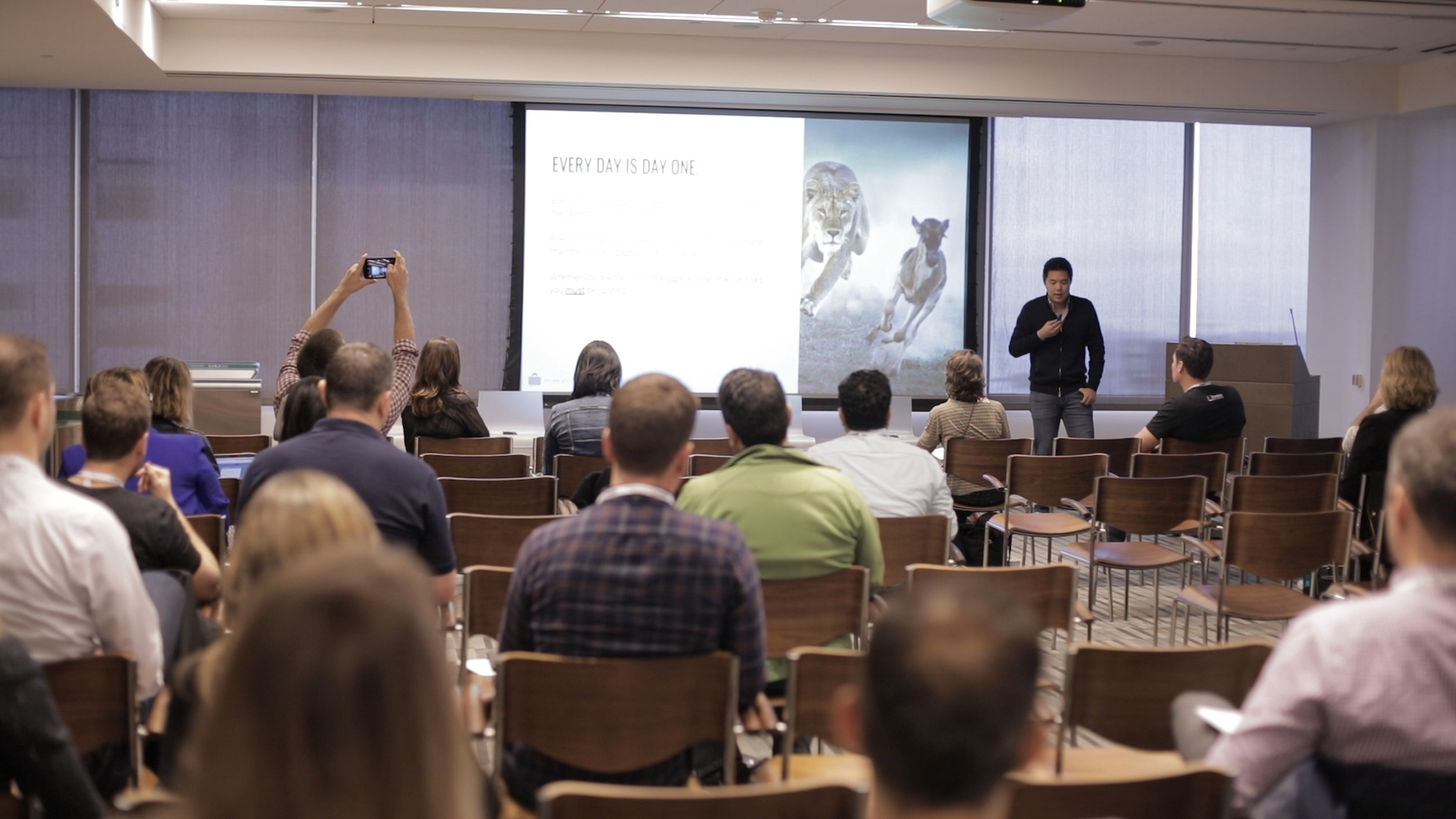
“My belief is a presentation should be a conversation, and the dominant force in that conversation is not what to say — it’s what to ask.”
This is Greg Winston’s strategy behind selling anything — from ready-made products to selling equity in a startup.
A longtime sales veteran, Greg created and managed three record-breaking teams at Xerox and CBS/Warner Bros. with total revenue topping 473 million. He then moved his talents into consulting to help companies improve their sales systems and grow revenue.
Greg is now fundraising for his own startup, buydiverse.org, an online marketplace that promotes minority-owned small businesses. In the first two weeks of fundraising, Greg raised $750,000 in venture capital.
“My belief is a presentation should be a conversation, and the dominant force in that conversation is not what to say — it's what to ask.” - @1GregWinston Share on XAt a Founders Network event, Greg will teach founders about the art of selling. The goal of the session is to help each member keep their enterprise going with the fuel of revenue for equity. All attendees will receive selling tools to guide their continued sales growth at the end of the session.
To learn more about improving your sales mindset, see if you qualify for membership and check out the webinar from May 13.
Register at Founders Network and check if you qualify for full membership and get actionable advice on:
- Applying the Giri method of prospecting
- Improving your sales mindset during sales presentations
- Strategies to understand an investor’s motivations
- Follow-up strategies that strengthen a relationship with an investor
You don’t always know what an investor wants to know. This is the value of utilizing strategic questions. “How do I offer the investor the information they need, as opposed to me spending all their time on a deck and graphics,” Greg explained. “That’s a dull presentation. Nobody wants that. They want you to present and go, ‘Does this make sense to you? Are we moving in the right direction? Is this what you thought there?’ All of these open-ended questions help someone have a conversation with you rather than a presentation.”
A place to start is learning what motivates the investor.
“You have to determine who you're talking to. Sometimes a savvy investor is emotionally tied to your concept, and you need to know that so that you can pull away from the numbers and talk about the intent.” - @1GregWinston Share on XLearn What Motivates The Investor
“Do you know why that person invests in the first place? Are you clear on their motivations? How can you tailor your pitch to that particular person and how can you hone in on the things that would cause them to get past no into yes?”
Greg explained that frequently, more experienced buyers or investors will be more tied to numbers whereas junior investors are more likely to be swayed by emotion. “You have to determine who you’re talking to. Sometimes a savvy investor is emotionally tied to your concept, and you need to know that so that you can use it and pull away from the numbers and talk about the intent.”
Use Questions to Negotiate
During one presentation, Greg asked the questions to learn the exact thing the investor needed to know in order to say yes. He was then able to negotiate with the investor and by the end of the conversation, the investor hadn’t just said yes, he’d actually increased his offer from $100K to $500K.
“If I say, ‘Well, just imagine what would happen if I take your information and I merge it back to my concept,’ this is how you get a person to see themselves in equity, not your concept.”
“I'm selling them equity in the concept, not the concept. And I think because we're entrepreneurs, we get tied up in the concept.” - @1GregWinston Share on XFocus on Equity, Not the Concept
“I’m selling them equity in the concept, not the concept. And I think because we’re entrepreneurs, we get tied up in the concept.”
When founders get too bogged down in explaining the mechanics of their idea, they can lose sight on the more important part to an investor, which is: how does this idea translate to revenue?
“In most cases, investors need to know just enough to see that it could work. Once they’re past the ‘could work part,’ they’re done. What they care about is ‘Will this thing bring in 20 times, 50 times my investment? I’m going to make ten investments this year. I need one of them to hit big. Is this the one?”
To learn more about improving your sales mindset, see if you qualify for membership and check out the webinar from May 13.






